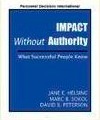Real projects to foster real leadership development
Acton learning, experience-based learning, work-based learning – call it what you like; many companies have been using this approach for years, some with great success and some with none.
The real questions to ask are these:
How do you embed meaningful projects into the development of high potential leaders?
How do you make sure leadership development occurs, not just more project work?
Our experience, assuming you already have a talent pool of high potentials to develop, is to build action learning around these key success factors:
- Start with sponsorship
- Select the right business opportunities
- Set the stage: provide a compelling cause for each project;
- Follow the guide to great sponsorship
- Coach the team and team members
- Prepare for presentation day: Orchestrate the presentation and articulate insights
- Leverage project recommendations
The Real Lessons of Action Learning:
Nobel Laureate Daniel Kahneman, uses the phrase, ‘Thinking fast, thinking slow”, to capture our preference for fast, intuitive thinking. It’s what often leads managers to use familiar approaches in the face of new situations. They may get to a solution fast but end up in the wrong destination.
Thinking slow is a more consciously thoughtful examination of the situation and how to come to the right solution. It takes more energy, and goes against the grain of managers who place a premium on speed, but it’s exactly what senior executives have learned to do in the face of a truly novel business challenge.
Now imagine a team of high potential employees, trying to show off their smarts to each other, as they work on a new problem. They gravitate to thinking fast, especially in the face of ambiguity, time pressure and not knowing each other.
Action learning can develop new leadership habits in managers:
The real work of an action learning team is to balance both ways of thinking, to discover how to shift gears in the face of new data, or in the face of not making expected progress.
The real leadership insight action learning can offer high potential managers is to discover how to address sticky issues that don’t neatly fit into any traditional area of responsibility.
The real career insight action learning can provide to high potential managers is what it means to be an organizational resource, solving those sticky issues, while still managing your day job. We estimate that senior executives apply at least 20% of their time to such assignments; it’s a choice about organizational lifestyle – if you want to play at the senior levels, you become an organizational resource, a fast, fluid, flexible leader who can think fast and think slow.
We design action learning to place a spot light on how managers and teams solve unfamiliar problems.
We engage action learning teams and their sponsors to talk about the reality of managing your day job, no matter how big it is, while remaining a resource for truly novel challenges outside your core area of expertise.
Contact Sage Consulting Resources to learn:
- How to engage senior executives as sponsors, where they discover unique benefit from their own involvement
- How to design reflection time into an already busy schedule
- How action learning team members can develop each other, and in ways that will last a lifetime
- How to prepare teams to present as if it were a Board-level performance
- How Action Learning can be customized to your company and your culture
After all, don’t you want real projects to foster real leadership development?
 Impact Without Authority
Impact Without Authority
 Action Learning Guide
Action Learning Guide